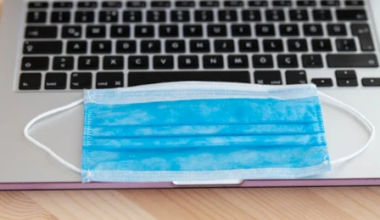In the intricate web of healthcare facilities, a pivotal yet often overlooked role is that of the sterile processing technician. These unsung heroes play a critical part in ensuring patient safety by meticulously sterilizing and preparing medical instruments and equipment. In this guide, we’ll delve into the multifaceted responsibilities of sterile processing technicians, shedding light on their indispensable contribution to the healthcare ecosystem.
Understanding the Role
Sterile processing technicians, also known as central service technicians or central sterile supply technicians, are responsible for the decontamination, sterilization, assembly, and distribution of medical instruments and equipment. They work behind the scenes in hospitals, surgical centers, clinics, and other healthcare facilities, diligently ensuring that all instruments are meticulously cleaned and sterilized to prevent infections and promote patient safety.
What qualifications are required to become a sterile processing technician?
To become a sterile processing technician, individuals typically need a high school diploma or equivalent. Many employers also prefer candidates who have completed a sterile processing technician training program, which may be offered by vocational schools or community colleges. Certification, such as the Certified Registered Central Service Technician (CRCST) credential, is often required or preferred by employers.
What are the key responsibilities of sterile processing technicians?
Sterile processing technicians are responsible for receiving soiled instruments, cleaning and decontaminating them using various methods, inspecting instruments for damage or defects, assembling instrument trays, packaging instruments for sterilization, operating sterilization equipment, and distributing sterilized instruments to various departments within the healthcare facility.
Why is the role of sterile processing technicians important?
The role of sterile processing technicians is crucial for preventing infections and ensuring patient safety. By properly sterilizing and preparing medical instruments and equipment, sterile processing technicians play a vital role in reducing the risk of healthcare-associated infections (HAIs) and ensuring that patients receive safe and effective care during medical procedures.
What are the challenges faced by sterile processing technicians?
Sterile processing technicians may face challenges such as high workload, time constraints, and the need to adhere to strict sterilization protocols and regulations. Additionally, the evolving landscape of healthcare technology and procedures may require sterile processing technicians to continually update their knowledge and skills to keep pace with advancements in the field.
How does the role of sterile processing technicians impact patient outcomes?
The role of sterile processing technicians directly impacts patient outcomes by reducing the risk of surgical site infections and other healthcare-associated infections. By ensuring that medical instruments and equipment are properly sterilized and prepared, sterile processing technicians contribute to the overall safety and effectiveness of medical procedures, ultimately improving patient outcomes and satisfaction.


